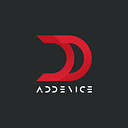We live in an age where IoT, Artificial Intelligence, and other intelligent technology have penetrated the healthcare industry. The development of healthcare applications for medical personnel is one of the advanced realms where technology has made a significant impact. This blog post will explore how to develop healthcare applications for medical personnel. We will not go through every step but focus on benefits, types of healthcare applications, must-have features, monetization models, and the cost of healthcare apps. So, after reading this blog, you will have a basic understanding of why to develop one and what to focus on.
Benefits of Mobile Health Technology for Medical Personnel
Mobile health technology has revolutionized the way medical personnel deliver care. Here are some of the healthcare app benefits.
Healthcare apps enhance communication among medical personnel. Doctors, nurses, and other healthcare professionals can exchange medical information such as test results and medical records in real time.
Medical personnel can access patient information anytime, anywhere. Gone are the days of piles of patient files and records. This eliminates paperwork and manual processes and contributes to accurate diagnosis and treatment decisions.
Mobile health applications allow medical personnel to monitor patients’ health remotely. This valuable benefit allows tracking of vital signs, medication adherence, and symptoms so that medical personnel can assess the patient’s progress and intervene when necessary.
Lastly, healthcare applications empower patients to actively engage in their own care by accessing medication reminders, viewing their health records, and tracking their progress.
Types of healthcare applications
Today we can witness an array of healthcare applications that are transforming the way we approach healthcare. Here are some major types of healthcare applications.
- Telehealth and telemedicine apps
- Health and wellness tracking apps
- Medication management apps
- Electronic health record (HER) apps
- Mental health and mindfulness apps
- Personalized fitness apps
- Women’s health apps.
Must-Have Features of a Successful Health App
You may get innovative and add more features to your health app but there are some that are must-have. Without them, your app will not be successful. And here are some:
Secure patient data access: Doctors and other medical personnel should have a secure platform to access patient data. For that reason, robust data encryption, multi-factor authentication, and compliance with healthcare privacy regulations, such as HIPPA are needed.
Real-time communication and collaboration: this refers both to the communication among medical personnel and with the client. Medical personnel should be able to share patient information, discuss treatment plans, and seek the opinion of their colleagues.
Clinical decision support: this includes tools like evidence-based guidelines, drug interaction checkers, and dosage calculators.
Drug reference database: this should include up-to-date information on drug dosage, indications, contraindications, and side effects.
Continuing medical education (CME): this includes access to CME courses, medical journals, research articles, and conferences.
Task and schedule management: this includes features for appointment scheduling, task assignment, and reminders. It can also incorporate integration with personal calendars and notifications.
Data analytics and insights: medical personnel should be able to analyze population health data, trends and generate reports on key performance indicators.
Monetization Models: How do Health Apps Make Money
The question is how these health apps make money. There are a number of monetization models to sustain the products and provide ongoing value to medical personnel. Here are some.
Freemium model: under this approach, the app offers some features and functionalities for free while other more advanced features can be accessed through in-app purchases and subscriptions. For example, while drug reference databases and medical calculators may be free, hospitals may need to purchase advanced features like diagnostic support, and patient management systems.
Subscription-based model: some hospitals and medical clinics that want to give access to their medical personnel to all of the features of the health app, prefer to pay a recurring fee, typically on a monthly or annual basis.
Enterprise or institution-based model: some health apps target institutions like hospitals, clinics rather than individual medical personnel. In this case, the features are tailored specifically for that health organization.
Data licensing and partnerships: some apps generate revenue by partnering with pharmaceutical companies, research institutions, or other health organizations. For example, the partnership may involve licensing the anonymized data for research purposes.
Sponsored content and advertising: advertising is not a very common model for health apps for medical personnel. However, some may display targeted advertisements or sponsored content to generate revenue.
Cost of healthcare app development
Developing healthcare apps for medical personnel involves various factors that determine the overall cost. For example, some apps have only basic features while others have more advanced functionality. Here are the factors that determine the cost:
- App complexity and features
- Development platform
- User interface and design
- Data security and compliance
- Integration and interoperability
- Testing and maintenance,
While these factors apply to all healthcare apps, the type of healthcare app for medical personnel is crucial. Here are some figures on the cost of the healthcare app according to type. This may give you a clue on what to expect in terms of cost.
Database app of EHRs development cost — $30000 to $50,000.
Medical networking app — $30,000 to $60,000
Billing app — $40,000 to $90,000
ePrescription (eRx) app — $40,000 to $80,000 or more.
Another major determinant factor is the location of development. Here is the cost as per the location of the developers.
Conclusion
Developing healthcare applications for medical personnel is a popular topic today. And this is because there is a tendency to move to a remote type of service. The communication among the medical personnel and the patients is mostly done remotely, including almost all stages of treatment and diagnosis. Therefore, the development of a healthcare app for medical personnel is in the mind of many clinic managers.
In this blog post, I tried to give you a basic idea about the stages of healthcare app development for medical personnel. Consult your development team for more details.
